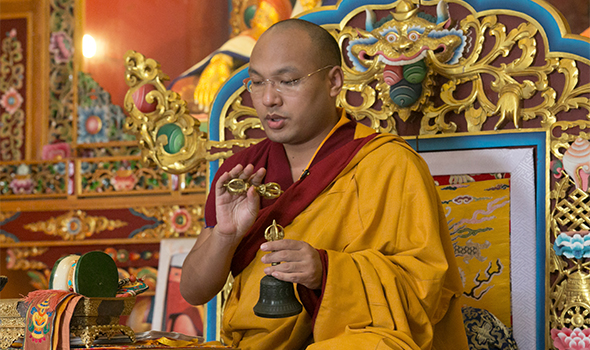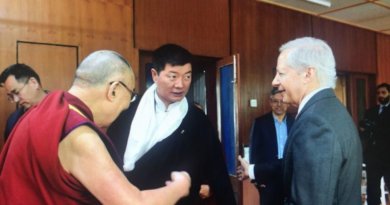Resolve Tibet Act Gains Unanimous Support in House Foreign Affairs Committee: Close to Becoming Law in US
By Tsering Choephel

DHARAMSALA, 30 Nov: The Resolve Tibet Act, a bill addressing the Tibet-China dispute, received unanimous bipartisan support from the House Foreign Affairs Committee (HFAC) during a markup hearing on 29 November. It is now poised to proceed to the House floor, reinforcing US efforts to compel China into negotiations with the Dalai Lama’s envoys to resolve the longstanding Tibet-China dispute.
This bill, an amended version of legislation introduced in the US Congress last July by Reps Jim McGovern (D-Mass.) and Michael McCaul (R-Texas), along with Sens. Jeff Merkley (D-Ore.) and Todd Young (R-Ind.), primarily seeks to resolve the Tibet-China conflict by pressuring Beijing to resume negotiations with the Dalai Lama’s envoys or the democratically elected leaders of the Tibetan people, meaning the leaders of the Central Tibetan Administration (CTA) in exile.
Significantly, the bill dismisses the Chinese claim of Tibet as part of China since antiquity as inaccurate. It also recognises the entirety of the traditional Tibetan provinces of Kham, Amdo, and U-Tsang as proper Tibet, in contrast to China’s demarcated Tibet Autonomous Region, which the CCP has replaced with ‘Xizang’ in its latest drive to sinicize.
The bill, which the committee’s Chairman Rep. Michael McCaul predicts “will pass the Senate and be signed into law,” also pledges to actively counter China’s disinformation about Tibetan history, people, and institutions. Furthermore, the bill calls for the promotion of the dialogue process between the Chinese government and the Dalai Lama or his representatives, or the democratically elected leaders of the Tibetan community without preconditions, in accordance with international law, including the UN Charter.
The bill also aims to coordinate with other governments in multilateral efforts toward a negotiated agreement on Tibet. If passed into law in the US, it will encourage the CCP to address the aspirations of the Tibetan people regarding their distinct historical, cultural, religious, and linguistic identity.
To combat the massive propaganda of the CCP, the bill emphasizes US public diplomacy efforts to “counter disinformation about Tibet,” including misinformation about the history of Tibet, the Tibetan people, and Tibetan institutions, including that of the Dalai Lama.
Rep. Jim McGovern, a key sponsor of the bill, stressed the Tibetan people’s right to determine their own destiny under international law. “Rather than lie about the history of Tibet, I call on the Chinese Government to restart dialogue with the Dalai Lama to resolve the long-standing dispute between Tibet and China and respect the aspirations of the Tibetan people,” he said.
Ranking Member Rep. Gregory Meeks expressed deep concern about “the ongoing effort by Beijing to dilute the distinct religious, cultural, linguistic and historical identity of the Tibetan people. This is an important and very timely measure.”
CTA President Penpa Tsering expressed gratitude to the HFAC chair and members for their support, stating, “This bill will allow the United States to address its consistent calls for dialogue with more force and urgency while giving voice to Tibetans in their own country. This will not only help the cause of Tibetans but also champion democracy, dialogue, and the cause of peace around the globe.”
The correspondence between Beijing and the representatives of the Dalai Lama began with four fact-finding Tibetan delegations visiting Tibet in 1979 and 1980, leading to exploratory talks held in Beijing in 1982 and 1984.
Nine rounds of talks were held between the envoys of His Holiness the Dalai Lama and representatives of China’s United Front Work Department since 2002.
During the course of nine rounds of Sino-Tibetan talks, the Tibetan side had presented to the Chinese leadership a Memorandum and Note seeking genuine autonomy for Tibet as enshrined in the Chinese constitution and Law on Regional National Autonomy.
The ninth and the last round of talks was held in 2010 and in 2012, the envoys of His Holiness the Dalai Lama resigned from their positions citing the overall deteriorating situation inside Tibet and “lack of willingness and sincerity” from the Chinese side.






